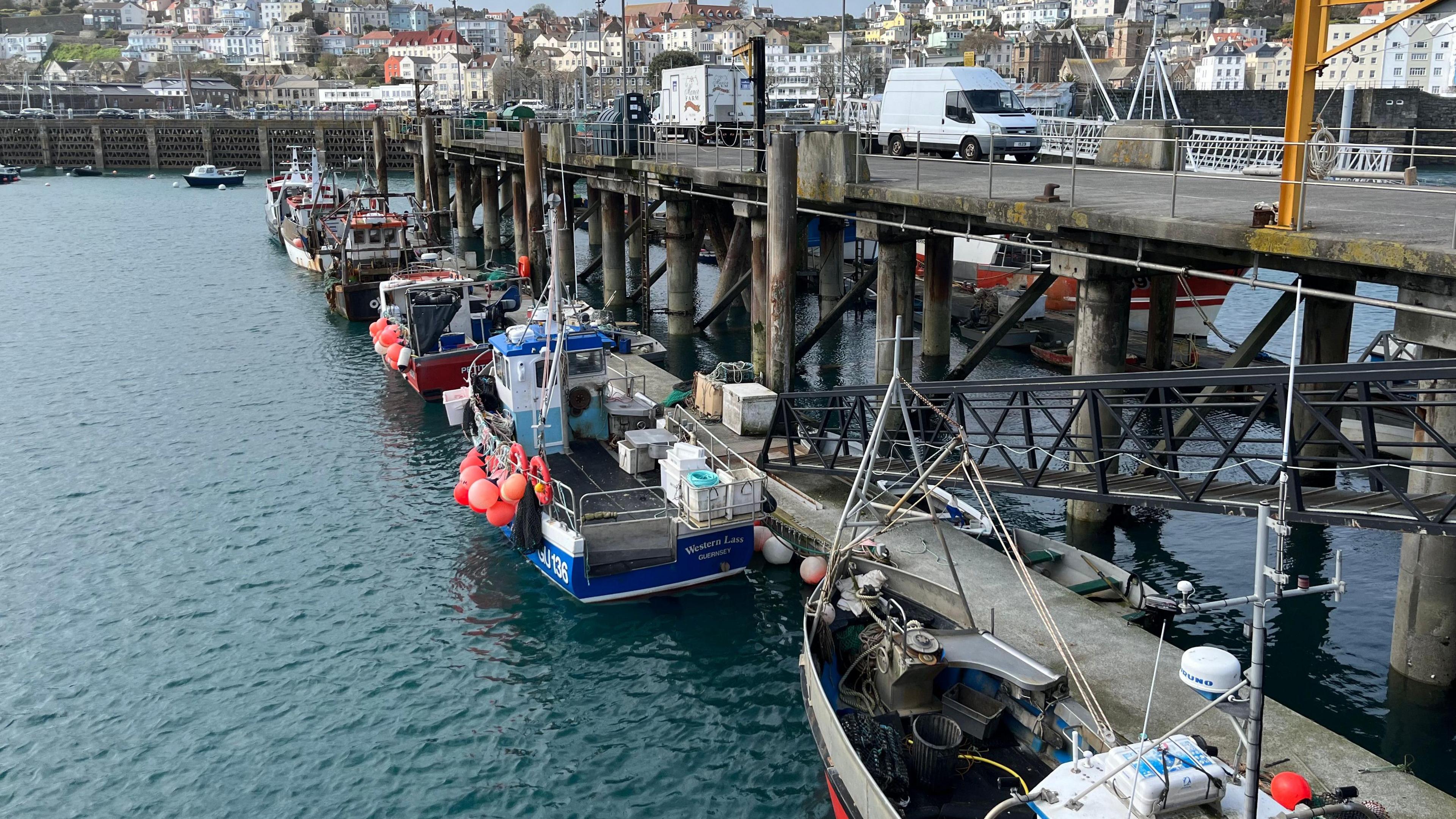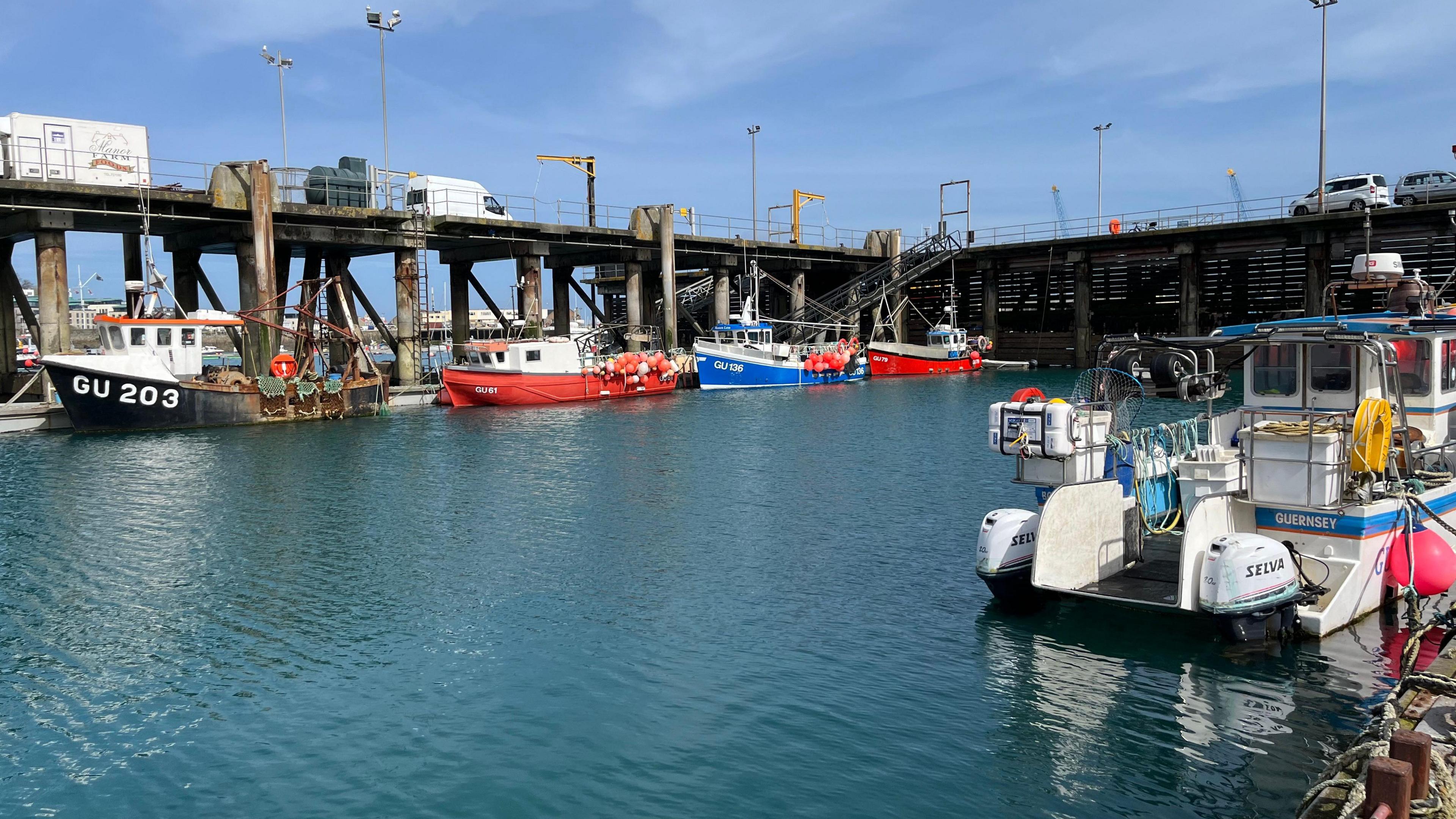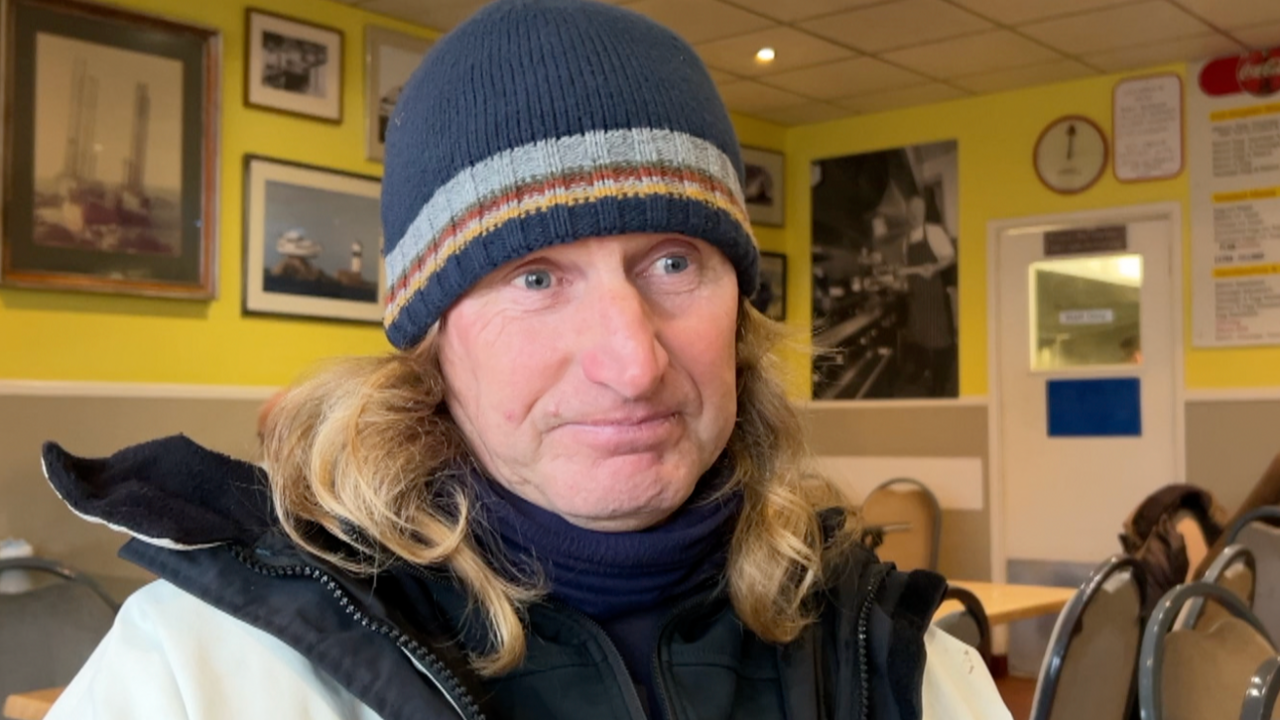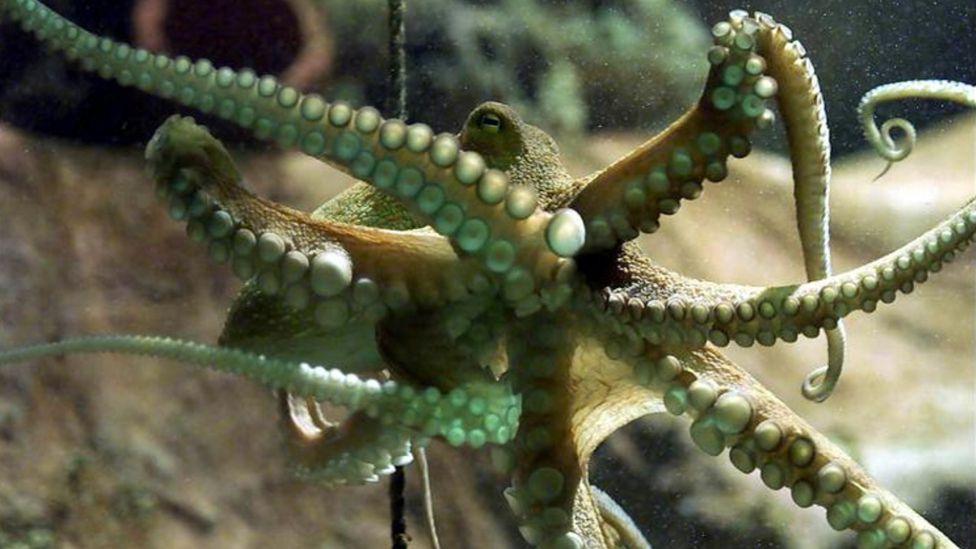Fish landings fall by more than 300 tonnes

A report from the government said 672 tonnes were landed in 2024 compared to 989 the previous year
- Published
Fish landings in Guernsey dropped by almost a third last year, official figures have shown.
A report from the States of Guernsey's Sea Fisheries department said 672 tonnes were landed in 2024 compared to 989 the previous year.
It said total landings peaked in 2016 with more than 1,300 tonnes landed, but by 2020 the figure had dropped to 1,065.
The government added the size of Guernsey's fishing fleet contracted last year with two of the largest potting boats being de-registered, which meant the island had 115 licenced vessels under 10m (33ft) in size along with four boats bigger than this.
The report said a "serious drop" in the amount of edible and spider crabs landed could be blamed on a recent abundance of octopus in local waters.
In February, fishermen said the number of octopus had "decimated the shellfish population".
Researchers have started looking into the spike in octopus numbers.
One area which did have an increase in landings was scallop dredging, the report said, with about 270 tonnes landed last year compared to 230 in 2023.
Sea Fisheries said scallop landings had risen in 2024 due largely to an "increase in fishing effort from vessels switching from trawling to dredging, which contributed to increased landings".
The report added international regulations led to a fall in the amount of pollack landed in Guernsey, with figures showing around two tonnes were landed in 2024 compared to 45 the previous year.
Follow BBC Guernsey on X, external and Facebook, external and Instagram, external. Send your story ideas to channel.islands@bbc.co.uk, external.
Related topics
- Published20 October

- Published5 February

- Published19 August
